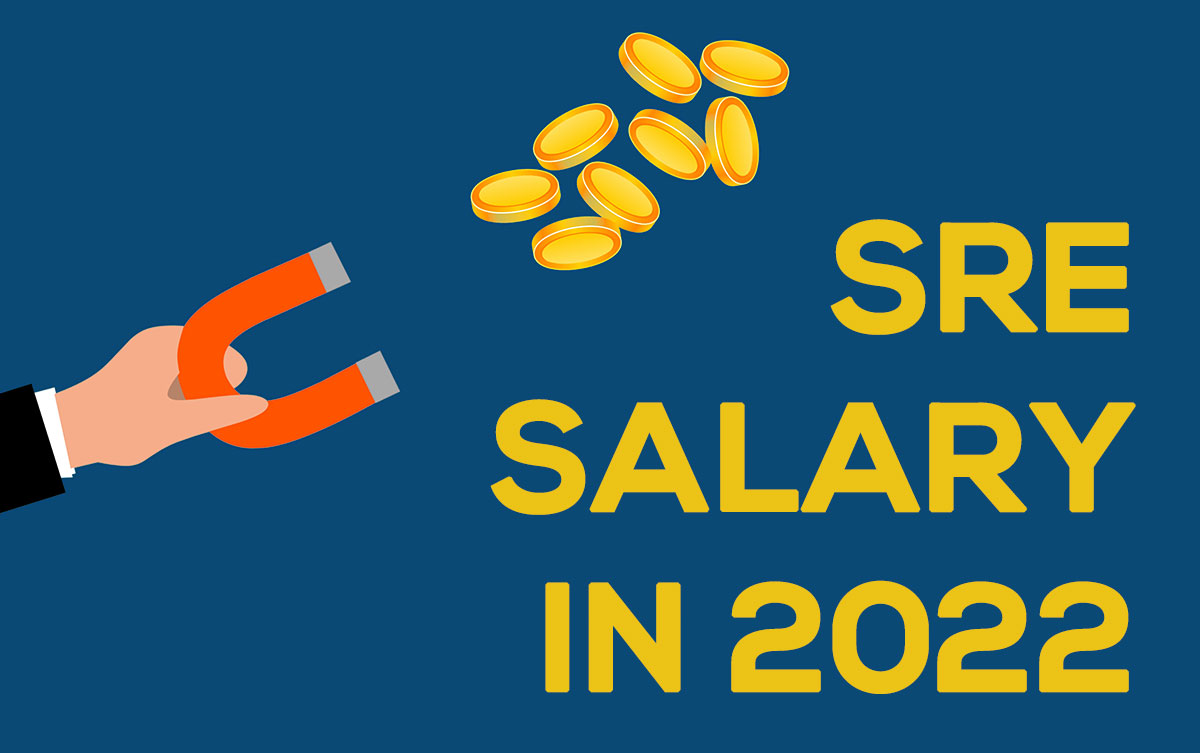SRE (Site Reliability Engineering) Roadmap for 2022
If you are looking for career growth in 2022, then this article is for you. This article talks about the various roles of a Site Reliability Engineer and how they can help you in your career growth path.
The term Site Reliability Engineering was coined by Google in 2003, but it’s only now that we are seeing the term gaining popularity and becoming the industry best practice for ensuring that your systems and services will be available 24/7, 365 days of the year. It involves a lot more than just making sure that your site works on all browsers and operating systems. The goal of a SRE team in 2022 is to make sure that you have a reliable infrastructure that can handle any issues that may arise, no matter how small or large they are.
Today, SRE stands for Software Engineering, Security, and Reliability. These three subjects are not just buzzwords; they’re skills that every software engineer should have in order to succeed. Every year, they’re listed among the top skills in demand by employers. This article is a step-by-step guide on how you can become an expert in SRE and what skills you need to develop to get there.
How to Become a Site Reliability Engineer
- The first step in becoming a Site Reliability Engineer (SRE) is understanding what it means to be a SRE. You should have a general – but the understandable idea of the types of issues that can happen on your project and how these can impact users, one’s productivity, or business goals.
- Understanding the threat model for your app/project will help you get a better picture of the purpose of SRE. You will be able to see which issues can affect your users – and how you can handle them accordingly (e.g., a dedicated support team responsible for handling 24/7 outages, and disaster recovery plans).
- The primary goal of the Site Reliability team is to ensure ultra scalability meets Service Level Objectives(SLO) – which in this context means that your app or website should be available at least 99.95% of the time (eighty-five minutes) and have a response time under 5 seconds if possible.
- You’ll know you are succeeding as an SRE when all major incidents that could cause downtime, outages, performance degradation or security issues are handled, as well as when no major incidents happen, and users are happy with the Service Level Objectives.
SREs don’t just deal with outages – their skills need to span across application development, business operations and deep technical security issues.
Typically for the first few years you will work as an operations engineer, often planned and not inherent; if it works out well this role can always be changed to Site Reliability Engineering.
Depending on your project or application (typically focused around web apps) there are a large number of different areas that could fall under responsibilities as a site reliability engineer:
- Continuously monitoring apps performance in real-time, with alerts when anomalies are found
- Data storage and cleaning
- Application availability
- Infrastructure monitoring: network, OS layer (e.g., Linux), databases etc…etc…
- Network monitoring
- System configuration / hosting issue resolution and troubleshooting
- Security issues, e.g., penetration testing, bug bounty hacking and exploit research (responsibilities depend in part on the organization)
The following is a list of miscellaneous soft skills to be considered as a SRE. It’s important that you take the time to build these trust and relationships, in addition to your reputation for competence:
- Critical thinking
- Problem-solving skills
- Strong communication, interpersonal and organizational skills
- Proven experience managing and working with teams of technical professionals
- Demonstrated ability to handle customer-facing priorities without a project or bureaucratic interference
SREs work in a very controlled environment; their primary focus is customer experience. SRE support for reliability engineering tasks is still limited, but it’s important that the operations staff on hand have all of the knowledge necessary.
SRE Salary in 2022

LinkedIn has just released their 2022 emerging jobs report for India, and Site Reliability Engineering(SRE) is no.2 in the list along with DevOps Engineer.
Site Reliability Engineering as the highest in-demand job in Industry in 2022.
An SRE salary varies from place to place and also depends on their qualification, certifications and experience.
According to Glassdoor, the estimated total pay for a SRE is ₹12,17,339 per year in India, with an average salary of ₹10,93,260 per year. In the USA the average base salary for a Senior SRE is $120,350/year and the minimum salary is around $85k/year. In the UK it is around £60,951/ year.
Conclusion
Job titles of SREs in this field include DevOps Engineer, Site Reliability Engineer, Application Developer, Data Center Engineer and Software Developer.
Then, what are you waiting for? start building your career as a Site Reliability Engineer(SRE) by getting trained for SRE Certifications by Suresh GP, an Enterprise coach from DevOps Institute and Co-author of Site Reliability Practitioner.
Why us?
TaUB Solutions, the only Elite partner for DevOps Institute in 2022
Suresh GP is the Managing Director of TaUB solutions Pte Ltd, Singapore & TaUB Solutions LLP in Bangalore. He has more than 18 years of experience in IT Service Management, IT Governance, BRM, Agile, DevOps and Organizational Change Management. He is a regular blogger and International speaker at itSMF UK, itSMF (Australia, USA, Finland, Norway, Singapore).





